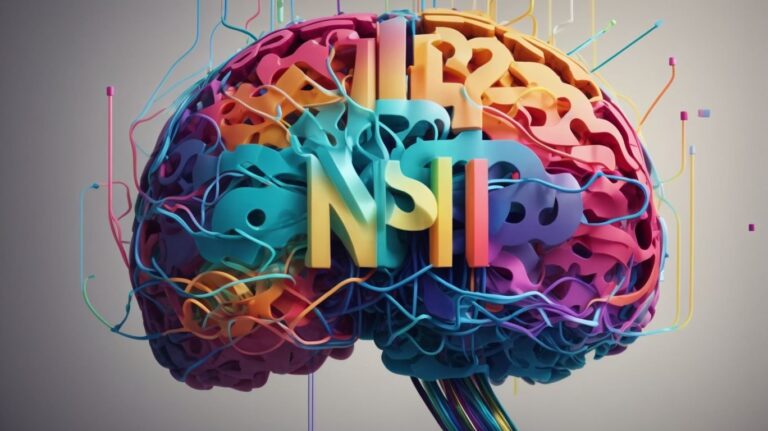Trust is the foundation of any successful relationship, whether personal or professional. But what exactly is trust, and why is it so crucial?
In this article, we will explore the concept of trust, its importance, and how it can be built and rebuilt. We will also delve into the psychological techniques that can help in building trust, such as active listening, empathy, and social proof. So, if you’re looking to strengthen your relationships and earn the trust of others, keep reading to discover valuable insights and strategies.
Contents
- 1 Key Takeaways:
- 2 What Is Trust?
- 3 Why Is Trust Important?
- 4 How Is Trust Built?
- 5 What Are The Psychological Techniques For Building Trust?
- 6 How Can Trust Be Rebuilt After It Has Been Broken?
- 7 Frequently Asked Questions
- 7.1 What are some common psychological techniques to build trust?
- 7.2 How can active listening help in building trust?
- 7.3 Why is empathy important in building trust?
- 7.4 How do clear boundaries contribute to building trust?
- 7.5 What role do promises play in building trust?
- 7.6 Can trust be rebuilt after it has been broken?
Key Takeaways:
What Is Trust?
Trust is the cornerstone of any meaningful relationship, be it personal or professional, where individuals rely on each other’s integrity, honesty, and dependability.
Building trust involves consistent actions that align with one’s words, creating a sense of predictability and security in interactions. This foundation allows for open communication, vulnerability, and cooperation to flourish.
With trust in place, partnerships thrive, boundaries are respected, and conflicts are approached with respect and understanding. Trust acts as a buffer against misunderstandings and miscommunications, fostering mutual respect and empathy in both personal and professional engagements. It is this trust that enables individuals to share challenges, successes, and dreams authentically, strengthening the bond between them.
Why Is Trust Important?
Trust is crucial as it forms the bedrock on which successful interactions and collaborations are built upon, serving as a buffer against the impact of past negative experiences and enabling the establishment of positive connections.
When trust exists in personal relationships, individuals feel secure and valued, creating a conducive environment for open communication and shared experiences.
In the business realm, trust is a fundamental currency that drives partnerships, client relationships, and employee morale.
Building trust takes time, consistency, and integrity, but its rewards are profound, leading to enhanced loyalty, reliability, and a strong foundation for future endeavors.
How Is Trust Built?
Trust is built through a combination of consistent actions, open communication, genuine concern, and non-verbal cues like eye contact and a warm smile that convey sincerity and goodwill.
Consistency forms the foundation of trust, as repeated behaviors establish reliability and predictability. When someone consistently follows through on promises and demonstrates integrity, it fosters a sense of security and dependability.
- Clear and honest communication plays a vital role in trust-building. Being transparent and forthcoming in interactions helps to establish credibility and understanding, creating a safe space for open dialogue and mutual respect.
- Genuine care involves showing empathy and consideration towards others, displaying a sincere interest in their well-being and success. Actions rooted in kindness and compassion nurture strong, enduring relationships based on trust.
Non-verbal cues, such as maintaining eye contact and offering a warm smile, can significantly impact how a message is perceived. These subtle gestures convey attentiveness and positivity, enhancing connection and building rapport effortlessly.
Consistency
Consistency plays a pivotal role in trust-building, as it helps establish credibility and showcases competence by demonstrating a reliable and predictable pattern of behavior over time.
Consistency is the cornerstone of trust in any relationship, whether personal or professional.
When individuals consistently follow through on their commitments and deliver on promises, it instills a sense of reliability and dependability. This reliability, in turn, fosters a sense of security and assurance within the other party, strengthening the bond of trust.
By maintaining a consistent approach in actions and decisions, individuals not only build credibility in the eyes of others but also demonstrate their competence and capability to handle situations effectively.
Honesty
Honesty forms the bedrock of trust, emanating genuine concern and transparency while dispelling any fear of missing out (FOMO) by fostering a culture of authenticity and openness.
Being honest in all interactions not only builds credibility but also strengthens relationships on a foundation of trust. When individuals communicate openly and truthfully, it creates a sense of security and reliability that promotes harmony and understanding.
Honesty allows for mistakes to be acknowledged and rectified, leading to continuous improvement and growth. Transparency in actions and intentions paves the way for meaningful connections and nurtures a community where individuals feel valued and respected. This commitment to authenticity fosters a sense of belonging and encourages collaboration in both personal and professional settings.
Reliability
Reliability expedites the trust-building process, leveraging psychological principles and insights from experts like Darlene Price and publications such as the Journal of Small Business Strategy to enhance credibility and rapport swiftly.
When individuals or businesses demonstrate consistency and dependability, it fosters a sense of security and comfort in their interactions, leading to a stronger bond with their audience or clients.
Consistency is key in establishing trust, as it creates predictability and reliability, reassuring others of their intentions and capabilities. Studies have shown that people are more inclined to trust those who exhibit consistent behavior, forming deeper connections based on reliability.
Communication
Effective communication alleviates decision fatigue and strengthens trust bonds, drawing insights from communication expert Robin Dreeke and resources like the American Psychological Association to enhance interpersonal connections and decision-making processes.
By actively engaging in open and honest dialogues, individuals can navigate complex decisions with clarity and confidence.
Building rapport through effective communication techniques, such as active listening and empathetic responses, lays a solid foundation for trust-based relationships.
Studies from the American Psychological Association underscore the profound impact of clear communication on reducing misunderstandings and fostering collaboration. When individuals feel heard and understood, they are more inclined to make informed decisions and forge stronger bonds.
Vulnerability
Vulnerability is a catalyst in trust-building, leveraging the power of social proof and lessons from renowned entities like the FBI and the Counterintelligence Training Center to forge deeper connections and foster mutual trust faster.
When individuals allow themselves to be vulnerable, it sends a powerful message of authenticity and openness, which are key elements in building trust.
Social proof plays a significant role here, as showcasing vulnerabilities can humanize interactions and make individuals more relatable.
Insights from the FBI and the Counterintelligence Training Center highlight how strategic vulnerability can disarm defenses and create an environment conducive to trust.
By embracing vulnerability, individuals can not only connect on a deeper level but also expedite the process of trust formation, leading to more meaningful relationships.
What Are The Psychological Techniques For Building Trust?
Psychological techniques offer valuable insights into trust-building, with practices like active listening and empathy serving as powerful tools to nurture understanding, empathy, and connection.
Active listening involves fully engaging with the speaker, focusing on their words, tone, and body language to demonstrate genuine interest and grasp their perspective.
Empathy, on the other hand, entails putting oneself in another’s shoes to comprehend their emotions and experiences. When individuals feel heard and understood, a deep sense of trust naturally develops.
Through active listening and empathy, people feel valued, respected, and validated, paving the way for deeper connections and stronger relationships.
Active Listening
Active listening is a cornerstone of trust-building, invoking the principle of reciprocity and drawing insights from research by Harvey & Omarzu and industry perspectives like Gartner to deepen understanding and rapport.
By actively listening, individuals not only demonstrate genuine interest in the speaker’s message but also show respect and empathy, elements crucial for fostering trust. This approach bridges communication gaps, leading to a deeper connection and mutual appreciation.
According to Harvey & Omarzu, effective active listening allows for accurate interpretation of others’ perspectives and emotions, paving the way for meaningful interactions. Industry leaders, such as those at Gartner, recognize that active listening cultivates a conducive environment for collaboration and innovation, ultimately strengthening relationships and driving productivity.
Empathy
Empathy fosters trust through the consistency principle, drawing on insights from Greene et al. and experts like Carthage Buckley to emphasize the role of empathy in building lasting connections and rapport.
When individuals display empathy, they convey an understanding and sensitivity to the emotions and experiences of others. This demonstration of empathy enables them to forge authentic relationships based on trust and mutual respect.
Research by Greene et al. delves into the profound impact of empathetic behavior on interpersonal dynamics, highlighting how consistent displays of empathy can contribute to the establishment of strong bonds. Carthage Buckley, an esteemed authority in the realm of trust-building, further asserts that empathy serves as a cornerstone in fostering meaningful connections not only in personal relationships but also within professional settings.
Reciprocity
Reciprocity is a powerful trust-building mechanism, leveraging social proof and insights from experts like Andrea Bonior and phenomena such as the Pygmalion effect to enhance mutual understanding and connection.
Reciprocity plays a crucial role in establishing relationships based on trust and cooperation. When individuals engage in reciprocal actions, it sets a positive tone for interaction, leading to a cycle of giving and receiving that strengthens the bond between them.
Through acts of reciprocation, whether through gestures, favors, or listening attentively, people demonstrate their willingness to invest in the relationship and create a sense of mutual understanding. Experts like Andrea Bonior emphasize that reciprocity is not just a social norm but a fundamental aspect of human relationships, influencing how people perceive each other’s intentions and reliability.
The concept of reciprocity taps into the innate human desire for fairness and balance, fostering trust and goodwill. By reciprocating gestures of kindness or respect, individuals validate each other’s efforts, building a foundation of trust that sustains and deepens their connection over time.
Consistency Principle
The consistency principle underpins trust-building, encouraging open and honest communication, drawing insights from research by McNulty & Karney and communication strategies from Well Said Inc. to foster transparency and rapport.
Research by McNulty & Karney emphasizes how consistent behavior plays a crucial role in establishing trust in relationships, as it conveys reliability and predictability.
Well Said Inc. advocates for clear, transparent communication as a cornerstone for building trust, suggesting that being open and honest fosters understanding and credibility.
By maintaining consistent actions and truthful dialogue, individuals can create a strong foundation of trust that bolsters relationships both personally and professionally.
Social Proof
Social proof is a compelling trust-building tool, aiding in making amends and drawing on research by Brauer & Proyer and insights from platforms like Psychology Today to rebuild connections and enhance credibility.
Whether it’s through testimonials, user reviews, or social media endorsements, social proof is a powerful tool that showcases the positive experiences of others, influencing people’s decisions and behaviors. Brauer & Proyer’s research highlights how witnessing approval from others can significantly impact an individual’s perception of trustworthiness and credibility.
Psychology Today delves into the psychological aspects behind the effectiveness of social proof, shedding light on why humans tend to rely on the actions and opinions of others to guide their own choices. By leveraging this innate tendency, businesses and individuals can not only enhance their reputation but also mend broken relationships and regain trust.
How Can Trust Be Rebuilt After It Has Been Broken?
Rebuilding trust after a breach requires consistent effort, a willingness to put faith in the process, and a commitment to open and honest communication to mend the fractures and restore confidence.
In the aftermath of a breach, individuals and organizations must embrace a proactive approach to rebuilding trust. This involves demonstrating consistency in actions and words, reinforcing the integrity of intentions, and prioritizing accountability.
By consistently delivering on promises and showcasing sincerity in every interaction, trust can gradually be rebuilt. Transparent communication plays a crucial role in this process as it fosters understanding and clarity, addressing concerns head-on and preventing misunderstandings from escalating.
It is through these concerted efforts that fractures can be healed, and faith in the relationship can be rejuvenated, paving the way for a stronger, more resilient bond.
Acknowledge the Breach of Trust
Acknowledging the breach of trust is the first step towards reconciliation, showcasing reliability and a commitment to establishing credibility by addressing the issue openly and transparently.
When trust is broken, the foundations of any relationship, whether personal or professional, can be severely shaken. By openly recognizing and taking responsibility for such breaches, individuals or organizations demonstrate their earnest desire to mend the damage done.
This not only conveys a sense of trustworthiness but also lays the groundwork for rebuilding the essential element of trust. In the world of business, this practice can be pivotal in winning back customers’ confidence and loyalty, securing a reputation for dependability and integrity.
Apologize and Take Responsibility
Apologizing and taking responsibility are essential in rebuilding trust, alleviating decision fatigue and leveraging insights from top entities to convey sincerity and accountability in the reconciliation process.
When individuals or organizations acknowledge their missteps through apologies, it shows a willingness to confront mistakes and work towards resolution.
By assuming accountability, they not only validate the feelings of those affected but also pave the way for open communication and understanding.
These actions signify a commitment to improvement and learning from past errors, which goes a long way in rebuilding broken trust.
Implementing strategies recommended by renowned experts and incorporating industry best practices further solidifies genuine regret and a proactive approach to rectifying the situation.
Make Amends
Making amends involves proactive communication and actions, drawing on strategies from Gartner and insights from platforms like Psychology Today to demonstrate sincerity and a genuine desire to repair the breach and regain trust.
Rebuilding trust is a delicate process that requires genuine effort and empathy. By acknowledging mistakes openly and taking responsibility, individuals or organizations can pave the way for effective reconciliation.
Psychology Today emphasizes the significance of active listening in such situations, where understanding the other party’s perspective is crucial for fostering mutual understanding. This aligns with Gartner’s recommendation of implementing clear communication channels and transparent actions to showcase commitment to trustworthiness.
Rebuild Consistency and Reliability
Rebuilding consistency and reliability post a trust breach is paramount, with actions like genuine smiles and leveraging social proof aiding in demonstrating commitment and integrity to restore trust and credibility.
After a trust breach, the foundation of trust can be fragile, requiring intentional efforts to mend and fortify it.
Genuine smiles go beyond surface actions, conveying sincerity and creating connections that foster understanding and trust.
By showcasing social proof, such as testimonials and public endorsements, organizations can validate their dedication and uphold their promises to rebuild broken trust.
These genuine gestures and visible commitments play a vital role in demonstrating unwavering dedication and integrity, paving the way for trust restoration and stronger relationships.
Communicate Openly and Honestly
Open and honest communication is the linchpin in trust rebuilding, drawing on psychological principles and insights to expedite the trust restoration process and foster deeper connections through sincerity and transparency.
Through transparent communication, individuals can bridge the gap created by past betrayals or misunderstandings, paving the way for a more profound sense of understanding and empathy.
By expressing genuine emotions and intentions openly, people can dismantle barriers forged by secrecy or deception, creating a safe space for vulnerability and truth to flourish.
Psychologically, this process aligns with the concept of ‘self-disclosure’, where sharing personal information fosters reciprocation, leading to increased trust and mutual respect.
Frequently Asked Questions
What are some common psychological techniques to build trust?
Some common psychological techniques to build trust include active listening, showing empathy, setting clear boundaries, and consistently following through on promises.
How can active listening help in building trust?
Active listening involves fully engaging in a conversation and paying attention to the speaker’s words, tone, and body language. This shows the other person that you value their thoughts and feelings, which can help build trust.
Why is empathy important in building trust?
Empathy is the ability to understand and share the feelings of another person. When we show empathy towards someone, it conveys that we care about their well-being and are invested in their emotions, which can help strengthen trust.
How do clear boundaries contribute to building trust?
Setting clear boundaries means communicating your needs and expectations to others. This helps build trust by creating a sense of safety and predictability in the relationship.
What role do promises play in building trust?
Keeping promises is crucial in building trust. When you consistently follow through on your commitments, it shows that you are reliable and can be counted on, which strengthens trust in the relationship.
Can trust be rebuilt after it has been broken?
Yes, trust can be rebuilt after it has been broken, but it takes time and effort from both parties. It requires open and honest communication, acknowledging and taking responsibility for the breach of trust, and actively working towards rebuilding it through consistent actions and behavior.



